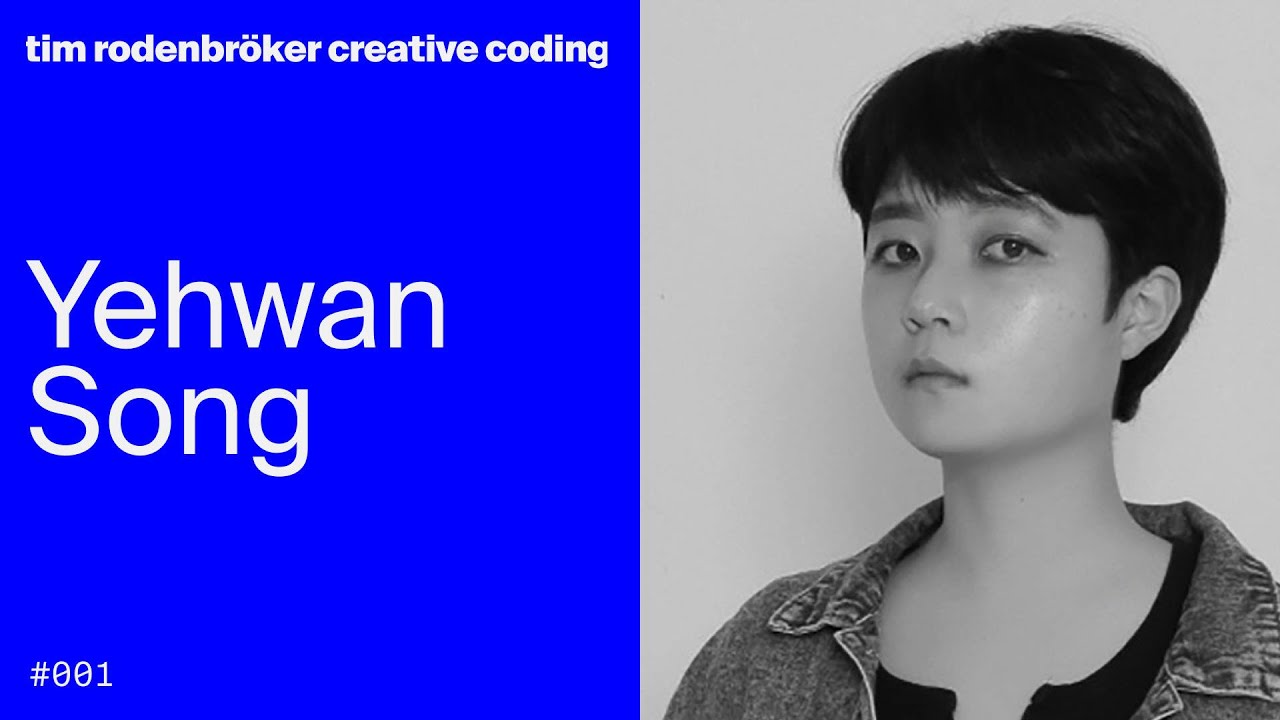A conversation with Yehwan Song
Very special thanks here to Conny Casey, who transcribed the interview. For the sake of readability, we had to make some textual changes.
Tim:
Okay. There she is. Hey! How are you?
Yehwan:
I’m good. I am doing good.
Tim:
I was really looking forward to meet you today. Yesterday i’ve spent some time to watch some of your recent talks, just like the one at the TAAALKS conference and also at Elisava. Very inspiring. Maybe you can introduce yourself quickly to tell us about who you are and where you’re from and where you are right now, what are you doing etcetera?
Yehwan:
Hi my name is Yehwan, thank you for having me. I’m a web designer and developer, but I try to make a website where I can non commercialized and thinking about what can I do using this web technology and what is the limitation that we are having right now because of this commercialized website and how can we break this individual barrier of the web design and expand it further.
Tim:
That’s super cool. So you are in Seoul right? And you were also born in Seoul?
Yehwan:
Yeah, I was born in Seoul and also almost fully educated in South Korea.
Tim:
You studied graphic design, is that correct?
Yehwan:
Yeah I majored in visual communication design.
Tim:
I know many people who design websites, and they try to break the boundaries of the conventions, but mostly they struggle with not having the skills to implement their own solutions for interactions for example.
What motivates you, where did your passion for breaking these boundaries come from? What were your thoughts and why did you really kick off this very difficult path to learn web technologies in such a deep sense by yourself?
Yehwan:
I think that when I am dealing with the websites, especially those template type websites, I always think how that kind of a website is very much limited and how that in turn limits the user. It usually doesn’t include minority cultures like in Korea for example. We are in an Asian country but we are not able to use our language using the web technology or even the domain. We are not able to make a Korean domain. So I kind of feel like this template ties, or major user centric web templates are very much making us isolated, and I kind of feel like why do we have this environment and how can I change it. This was my basic motivation, because my cultural background is coming from South Korea which is a minor country, and it really motivated me to figure out how can I break this for ignored users, or ignored cultures, and find out how I can make it wider and how I can modify this. I just really want to change this environment, because I somehow was a little bit scared of this environment going to those countries through those item direction that always pushes us to follow this template and follow this environment.
I just don’t want to do that so I try to use this motivation on web design and web templates. Coming from those motivations, I started to learn web tools and web code because I felt like I needed to code by myself to actually realize what I’m imagining. It took a long time for me, I guess that it took at least two or three years to understand how the code works and understand how can I build my own website and I’m still learning new technologies and new web libraries for example. But it wasn’t impossible for me to make my own website and start changing those old websites.
Tim:
Okay. That’s very cool. What I really like about your work is that it also touches on the philosophy of Creative Coding which I am dealing with a lot today. That’s why I went back to university to study again and to think about why it’s Creative Coding or what kind of things can we do with it? Not just in a creative or artistic and design and commercial sense, but more in a way how we can shift our mindsets towards a more liberal world of technology. That’s what I really love about your projects. Because I think when we talk about the internet, we mostly talk about what huge corporations present us as the Internet.
Like, you know, these absolutely streamlined and commercialized environments. We think that video platforms, social media networks are the internet. But your work shows people that it can be much, much more than this! It can be something that is completely unexplored. It can be so much fun at the same time and so individual. Everybody could express themselves in a way that fits their individual personality. And it kind of reminds me very much about the Internet back in the 90s when Net Art was rising and people were creating web experiences that had nothing to do with this stuff that we see today. What do you think about net art by the way? Are you into Net Art? Is that something that you’ve researched or does your inspiration come from Net Art in any way?
Yehwan:
I was born in 1995, after this Net Art boom was already finished. I just thought that the Internet environment is really weird. I think that is because my background is in graphic design. And when you think about a visual communication design, there are so many extreme experiments using visuals and making posters for example, they try to make more crazy posters and that was pretty fine in the graphic design field. But when we are dealing with web design which is the graphic part of graphic design as well that people are so much focused on the user friendly or template based and use of UX/UI experience and I felt like that was really weird. And I can change it using the knowledge that I have when I’m dealing with the poster design or editorial design.
The basic motivation was that maybe I can change this web environment and I couldn’t, so I started to do many different experiments using those web technologies. And after that I just listened to lots of comments like nineties networks and were like similar to those nineties experiments. From that point on after I already done this experiment, I started to research those nineties Web Art and Net Art and it was shocking to me that there were already experts and lots of experiments using this web technology even when we first had this technology. At one point people stopped doing that because of the corporations or because they don’t really think that the internet is the best place to do the experiments, I don’t really know, but it was really shocking to me. After that I really fell in love with net art, but I would say that wasn’t really the motivation that I worked in this experiment on web environment.
Tim:
I’ve got so many thoughts on this because I also studied Graphic Design or Communication Design. And for me it feels totally weird today because we are, you know, the teachers that try to teach the students how communication works and they do this through teaching typography and editorial design and static media. These teachings become more and more irrelevant because things are fluid, things are flexible, things are completely systematic and have to be taught in a completely different way. And when I go to my Instagram feed for example, I have a very difficult relationship with Instagram. It’s really a very important platform for me and my work, but at the same time I feel absolutely inconvenient there. It’s like I don’t know if it’s strange but what I want to say here is when I go to my Instagram feed, I see typography all over the place. People create new typefaces that look the same as Helvetica or Times New Roman and sell this as something very new, something very innovative. And I very often think why don’t we establish a culture in design education where we don’t think any more too much about these things that are already very good. We have to focus much more on the things that are really the way we communicate today. I mean designing a font is so repetitive, it’s so conservative and it leads to a situation where people are dropped onto the market that won’t find a good job in the end, right?
Communication is the Internet and designing also should include web technologies and I find it very interesting that corporations are making technology more and more complicated and that’s also a point I would like to discuss with you. You told me that you don’t use that many frameworks just as me. I try to avoid any kind of dependency in my teaching. I try to make my students focus as much as possible on the very core and the basic fundamental principles. How do you deal with complexity in your code and with libraries?
Yehwan:
At one point I was like, I always have the pressure that I need to learn all those psycho web technologies that huge corporations do so that I can develop the website that they can do as well. And then I kind of feel like do we really need that? Is the eastern internet that much better place. And even though I use the web technology and even though even after I use those frameworks and make a website much faster. Is that really what I want to create, and is that what people will want when they’re using the websites?
I do agree that those huge corporations make web code really complicated and mask the gap between developer and non-developer and obscure everything. So then people are not able to even imagine what is going on when they are using the Internet, and that really causes people to stop trying to understand what they are doing when they’re using the Internet. I just really think that that is really not fair especially for people like me who are not using English as their first language. All the cookie policies are in English, so we are not even able to read it, but we need to upgrade without any choice in order to use the website etcetera.
I know at one point the Internet should be used as connecting people in different countries, but the obscuring and not clear technologies that they are using, and this complex environment really doesn’t help us. I just wanted to make a website that is not using those frameworks and that is not using these complex codes.
I don’t really say that that direction is wrong and we need to remove that direction. What I want to say is that there should be more diversity when we are dealing with the Internet, and those websites that I create should be different from the websites that they are creating. That was somehow like a philosophy or something that I want to achieve in there when I’m dealing with the website. I try to use blast frameworks for blast libraries for you know angular or there’s no kind of back-end code, but just still wanna make experimental sites and still want to approach people using the simple technology. I know some of my projects looks really complex, but you already know that in code the site is not that complex website, right? It’s just the trick.
Tim:
Yeah, I think the trick in your case especially is that you are using web technology a bit different because you learn patterns or your thought patterns, that you’re just have in your toolkit now and you can use them. I’m absolutely blown away by all your 3D experiences. I know that people don’t know how hard it is to use CSS to create 3D experiences. This is completely different than using p5.js for example, I mean in p5.js we have 3D mode and we can quickly create something very complex with just a few lines of code. CSS is very different, but it comes with so many possibilities, especially in terms of interaction in placing typography in a proper way. I created this group Crazy Cool Developers about seven years ago on Facebook, a community which connects people that aim to create stuff like that. Learning web technologies to create various crazy websites and create interesting web experiences. I think you are still at the very top of all these people and I really like the philosophy to say learn the basics.
I get so many questions about, hey, what about three.js and p5.js. What kind of technologies should I focus on? I think it’s much more important to understand the principles, and you can basically learn the principles with every programming language. HTML. CSS and Javascript is a massive foundation to create a lot of very very cool stuff.
Okay, what about the school for poetic computation? I think Zach Lieberman is also a rising star on this creative coding sky. What did you learn in New York when you went to the School for Poetic Computation (SFPC)?
The best advantage of this school (SFPC) is that they have so much power in creating a community.
Yehwan Song about the School for Poetic Computation
Yehwan:
The best advantage of this school is that they have so much power in creating a community. Every year, they collect students from different fields. For example, their second students don’t know code at all. But they know art. And then there are some students who don’t know art at all, they have a background in computer science. They collect those students and those have a strong power to create a community. We start to get together the knowledge that we have, and we started to create something using our shared knowledge and sharing the background and perspectives. It was really the best experience because it helps me to not only learn the code, but it somehow exposed myself to the code area and somehow started me to think about maybe I can use code as a material when I’m making visuals. I know some part of the code. But at the very beginning when I entered the School for Poetic Computation, I was still obsessed with this idea that I need to learn code step by step. There should be a way that I need to follow in order to become a master of the code. But in SFPC, they let me explore and experiment with code even though you don’t really know the code.
I think that will help me to create my own way to build a website and that. As you said I have a different way of using codes that affected me to create different websites or create different visuals. So the SFPC helped me, the school has its own lecture and has its own class.
But the best advantage of the School for Poetic Computation is that you have this space and you have the friends that have different backgrounds, and we start to share information and all the guests and each of us have to start to find a way to learn what you want to learn, for example art or code or something different.
Tim:
I saw a post on Medium by the SFPC which was by a teacher. I don’t remember her name anymore. But she seems to help people define their artist statement. So, I see your work very well defined. It looks to me that you have a very clear vision of exactly what you want to do. You’ve got these methodologies developed for yourself like this “Anti User-Friendly”-approach. This seems to be the driving motor and the fire that’s burning inside of your creativity. How would you explain the process of finding that kind of artistic framework and vision, defining it, using it and also what is necessary to do? I don’t know exactly how to ask this question. What was the process of defining and finding that kind of vision for yourself?
Yehwan:
The main thing that I am still working on is the “Anti User-Friendly” or “Anti User-Centric” web site. That theme was actually the first thing i started to work on during the School for Poetic Computation for the Master.
First of all, I was really shocked that the information that I can receive in New York is very different from information that I could receive in Korea, because in regards to the technology, obviously the U. S. has much more on knowledge and fluency when they’re dealing with technology, because it’s basically in English and it’s from their culture. I kind of felt like that was the very first point. That was a very certain point that I started to feel like this is not that much very environmental or that this is not the thing. Because I already think I always think that this Internet is like a utopia that we are.
We connect people around the world and we have this fairer environment and we are meeting people in a fairer environment. But actually, it is not true. The way people like understand this web environment, and use the web environment, is very different based on the culture and basically on their knowledge, and I think I first realized that during the School for Poetic Computation. There was a motivation that maybe I can, maybe I need to create or share this idea or the inspiration that I received during this SFPC.
Every semester we need to do the final exhibition in school. That was the very first time that I created the artwork code “Anti User-Friendly”, and there were lots of people coming to those exhibitions and I was able to talk to them and share my ideas. Those cycle experience of sharing ideas helped me to learn, that this “Anti User-Friendly” is the right direction or the direction that has the possibility that I can explore more and expand further.
Tim:
Yeah, that’s super cool. I really like that you mentioned that the sphere in in South Korea is completely different than what you’ve experienced in New York. How does it feel to be someone who creates that kind of media art, media design whatever in South Korea? Do you have a community there for these topics or are you a complete outsider?
Yehwan:
My background is Graphic Design and I didn’t really have a large community in Korea to share learned code. I’m not 100% sure but I guess Korea is still trying to learn code. I don’t really agree with learning code, but exposing yourself to code and trying to half the target first and use the code as a tool to achieve the target is the perspective that I have when I’m teaching or learning code. In Korea I think there are still people that believe that we need to first learn code and get inspired or create something using that knowledge that you untrained from, like for example a coding school, I just don’t really love that environment.
So that is why I wasn’t in the creative coding community in Korea. From the experience that I have in Korea and in New York and in different countries I fell that Korea is still not very much flexible when they’re dealing with the code, whereas New York or for example, School for Computation is very much flexible dealing with and accepting that different knowledge is for different codes of approaches and they are dealing with the technologies.
Tim:
Yeah totally. I get it. I mean the School for Poetic Computation basically what’s going on in the U.S. from my perspective is absolutely different from everything also here in Europe. Europe is always or is still also way behind. I mean you’ve been recently in Europe as well, right? How did you perceive that? How did you like Europe and your journey and what were your impressions?
Yehwan:
Besides this Creative Coding and besides my job I always love meeting people from different cultures. They become like my family. Some of them are in New York, some of them are in the rest of the U.S., or in Europe or in China, Japan, etcetera. So I was familiar with this international environment, people having different cultural backgrounds and different perspective is very much familiar to me and I just enjoyed that kind of difference, gaining new knowledge or new perspectives. Widening my perspective is something that I really enjoy while I’m traveling and meeting new people from different countries.
I’m planning to travel to New York after the exhibition that I’m preparing in Korea. I’m trying to keep myself traveling and going to different areas and not limit the knowledge that I already have right now, so Yeah.
Tim:
Cool. Okay. And we were speaking a bit about plans for the future, where do you see yourself in, let’s say a few years, are you planning to stay in Korea or are you going to go back to America or something like that?
Yehwan:
I don’t know yet, but I want to keep myself travelling. I know that maybe that is impossible because they have this environment that we’re not able to move like we used to do two or three years ago before Covid, but I just want to keep myself in different countries and keep myself as Korean and keep my culture but still I want to see how different environments and different cultures have different knowledge and perspective etcetera. So yeah, I don’t really know.
Tim:
Yeah. Okay, talking about Covid – I would like to know… did Covid also have positive effects on your life?
Yehwan:
Yeah, I think we are still struggling how to solve this issue or if this problem is something that we can solve in the end or is there any solution for this situation. In history for example if there is like a hardship or there’s a hard environment it will cause art to explore further and create new art or new trends for example. So I think that’s in terms of culture or in terms of the way people dealing with the status or the experiments. I think Covid is a hardship and it’s a shame that we have Covid right now, but it somehow helped us to create something different or think about what can we do to expand in this new environment. I would say there are some advantages in terms of culture or art but still yeah, I don’t know.
Tim:
It’s a difficult question but, to be honest, I’m personally totally fed up with all these bad news and in the discussions about Covid, it feels so overwhelming. I gotta say that for me it also had some positive aspects and I tried to focus on that as much as possible to not go crazy because it’s very difficult to not go crazy these days sometimes.
Oh, btw. I miss to check the chat and we have a few people there! The first comment is by my friend Justin Lincoln from Wallawalla close to Washington, so Justin, thanks for joining. It’s amazing to have you here. He is also an artist and creative coding educator who has been very early already in this Creative Coding scene. He has this tumblr-blog which was my inspiration back in the days when I felt like creative coding is an absolute outsider’s activity and he has had this blog fyprocessing.tumblr.com where he posts gifs and videos by people working with Processing.
This is his question: Did you use Processing any, have you ever worked with it or is that how do you perceive Processing basically?
Yehwan:
I’ve worked with Processing. I think it’s interesting because partially I love coding itself and I love how a mathematician can create visuals and those code can create visuals is something that I am really fascinated in. But at the same time, I really love the web environment that is infirm, the people are joining and this is a new word for example, so I love creating, I love Processing but I stick into this Internet work because I suppose the other parts that I love and I’m dealing with the web. But I don’t think that’s right.
Tim:
Totally. Maybe that could be interesting for some of the viewers who are subscribers on my channel. I have been preparing a web development/web art curriculum for many months. Like, you know, to teach people how to use web technologies. I’ve been thinking so much about what technology I should use for my teaching, right?
So I feel very at home in this Processing sphere, but at the same time I see so many possibilities in web technologies. What I love about Processing is that it’s really great tool to onboard people for coding, you get very quick wins, it’s very easy to learn. And you really understand the basic principles which are very difficult to learn in a web environment. There are many more obstacles in this web development sphere. And getting your head around these very basic principles is much easier in Processing.
But I’m already thinking intensely about how to teach people to use web technologies and that’s definitely something I’m going to do in the next years. The WWW has so many amazing possibilities, creating spaces for us. It’s creating things that people can experience through a simple web address. It’s just great. I love that.
Yehwan:
Yeah. And it’s more like layers and layers, there are so many smart people who want to create their own libraries, for example. So they create this layer and they put a new layer on the top of the old layer and now we don’t really know who started this tower of the layers and how can we fix this if there is any problem.
And I think that really shows us the ecosystem that we have in society when we are dealing with web code because there are some broken parts, but we don’t know how to start fixing this broken part because there are so many people involved and they were so anonymous. Right? Those kinds of small characteristics that web coding has because it’s an environment for the people is the fascinating part for me.
Tim:
Absolutely. What’s very motivating is that through for example, a technology like Processing, we can create results or artifacts like GIFs or videos which are very easy to share and to generate. So the way from writing code and generating a video is that it can be shared on social media platforms for example, or on the website, is much shorter than the way of creating a website from my point of view.
So that’s also something I want to do: bring people into this situation to have success moments, where they feel like “wow I created this and I shared this” and people can react to this and can empower each other. So I want to make this way as short as possible.
And it’s also a benefit that I see in Processing. I see many people loving p5.js and I’m also very deep in love with that technology, but at the same time, I’ve been fighting with this a lot, to be honest. I’ve been thinking a lot about what is the right way.
By the way, talking about teaching, would you also like to teach basically one day.
Yehwan:
I do teach them in school, once in one class in one semester, very small classes, but teaching is not my major job for now. And I do love workshops and stuff, but I don’t really want to teach right now because I love creating weird things, but it can be a little bit overwhelming when it comes to new coders. So I am not really interested in teaching right now, but I think that it’s very interesting when I go to school and do the one week workshop for example, that like those second set a limited amount of time and those like the inspiration or the imagination that’s didn’t have, it’s really inspiring all the time. Maybe I consider teaching a long-term workshop and, in the future, maybe I love to teach students.
Tim:
I look into the chat and now people started to post questions which is amazing. There’s a question, I don’t know if that question is for me or for you, Justin: “Are you in touch with Taeyoon Choi? I did a workshop as a student of Taiwan, I admire what he does and I wish I could have done School for Poetic Computation to try to bring some of that spirit into the classroom, but it’s difficult.”
Yehwan:
Taeyoon Choi is Korean American, he created the School for poetic computation with Zach Liebermann and some other people there. It’s surprising that the lectures or the classes or the differences between people who are understanding of the code in School for Poetic Computation. The lectures are amazing, and there are amazing teachers in SFPC, but I would say the best part of the school is not coming from the lecture itself, it’s more like a community and how people keep the community even after the semester is the most advantage.
There were some students who don’t really know code at all but still were in SFPC and 10 weeks is a short term to learn code, right? So even on the last day they are not really the master of the code, but still they were in a sufficient community and that ended up helping them to create artwork that differed from what they have done before they come to school for creative computation. I don’t really know that that will answer the question but I would say he’s one of those people who want to create in the Internet, understand Internet in a different way and how can we make a better environment. I try to make the solution or figure or expand the perspective by creating a different website and creating or writing things about “Anti User-Friendly” etcetera.
He works on the performance side, he does the performance as his own artwork and he has a similar perspective, I was affected a lot from him. He wants to create a fairer environment and a different environment, but he is trying to solve it more visual.
Tim:
Super cool. I definitely gotta check his work out. Yeah. Nice, okay, here’s another one (by Eduardo Guido): “I absolutely love your work! Do you plan on releasing courses online or open a Patreon to learn more about your methodology and how you create your works?” I think you already answered that question.
Yehwan:
Yeah, I have a lot of workshops this year, so I will be traveling a lot in New York and after that I will be in Europe. I will definitely let you know. I don’t really have a plan to make up online-classes. For now, I just want to focus on how to change the perspective that they have when they are dealing with the Internet rather than coding or the computer language itself, so I would be more focused on the workshops and conferences this year.
Tim:
So if you’re in Europe, just let me know, maybe we can have a real coffee one day and then we can meet anywhere that would be really amazing and maybe we can make something like a part two of this talk because I really enjoyed it so much to speak to you. For me that was a super cool um conversation. I really enjoyed it. Do you have any more things you want to say or anyone you want to greet or any questions you want to ask someone here?
Yehwan:
I personally think it was good to hear that you said at the very beginning on TAAALKS that I have done last year and the year before it was very different because I tried to expand my experiments, not only creating something fun but more creating architecture structure and I in the theme of the “Anti User-Friendly”, I’m trying to explore a different way to make a website or different methods and different technologies and this year I have several exhibitions and I’m trying to see how to install the artwork in the physical place using web technology and how can I combine this physical environment into this virtual environment. I think that I will focus on working on for this year. So yeah, maybe if we are able to meet later this year, maybe I might have some different artwork using different methods. Maybe we can talk about that as well.
Tim:
100% Absolutely. I would love to definitely. Yeah, I think what I said in the beginning is that I saw your talk at the TAAALKS conference and I feel like what I see is that you become much more confident in explaining what you do in your work.
And also this overall methodology, this anti user friendly explanation, also on your slides on the Elizabeth to talk was very important for me because I think this is really an eye opener for people. They see that there is one idea that you follow and this makes the whole thing much easy to understand, right?
It’s very powerful and I’m working on this so intensely in my studies to define who I want to be and what kind of role I want to play and how I want to, you know, I want to use my energy to bring something into the world and I see the same pattern in your work: You’ve got something like this methodology statement and it’s very, very cool to see how how strict you are with following that path and how clear everything gets when we understand that this is the philosophy you follow, it’s amazing. That was really an epiphany and an eye opener for me to see, okay, this is super easy to understand and this is Yehwan Song.
Thank you, thank you for joining this discussion and yeah, looking forward to meet you one day in real life, I would love to.
Yehwan:
And yeah, you know, I wish you good evening, thank you so much for having me. I have a wish you can meet later this year as well to in person and have a nice first of the day.
Thank you!
Related
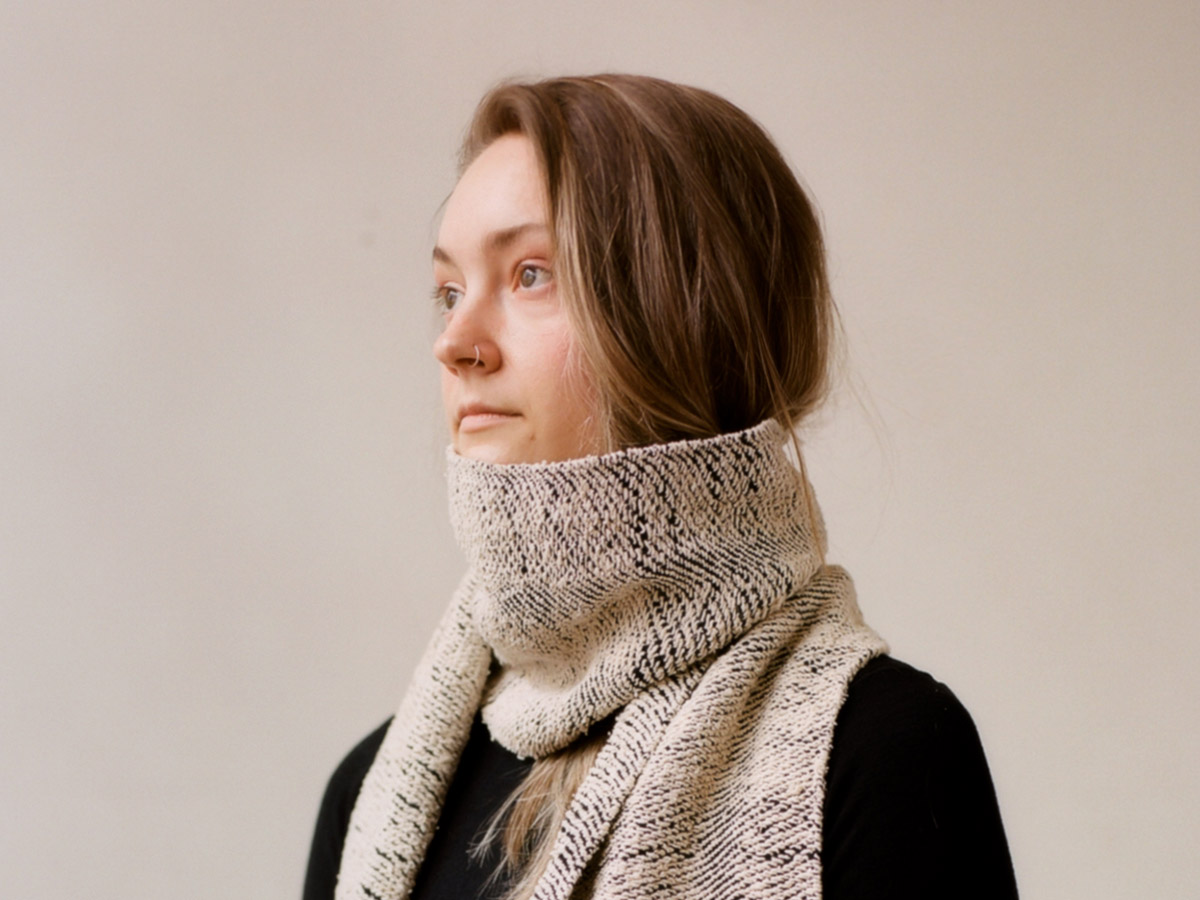 Sam Griffith connects Creative Coding with Enviromentalism
Sam Griffith connects Creative Coding with Enviromentalism
In this post I’d like to introduce you to Sam Griffith, a talented graphic designer based in Detroit, to discuss […]
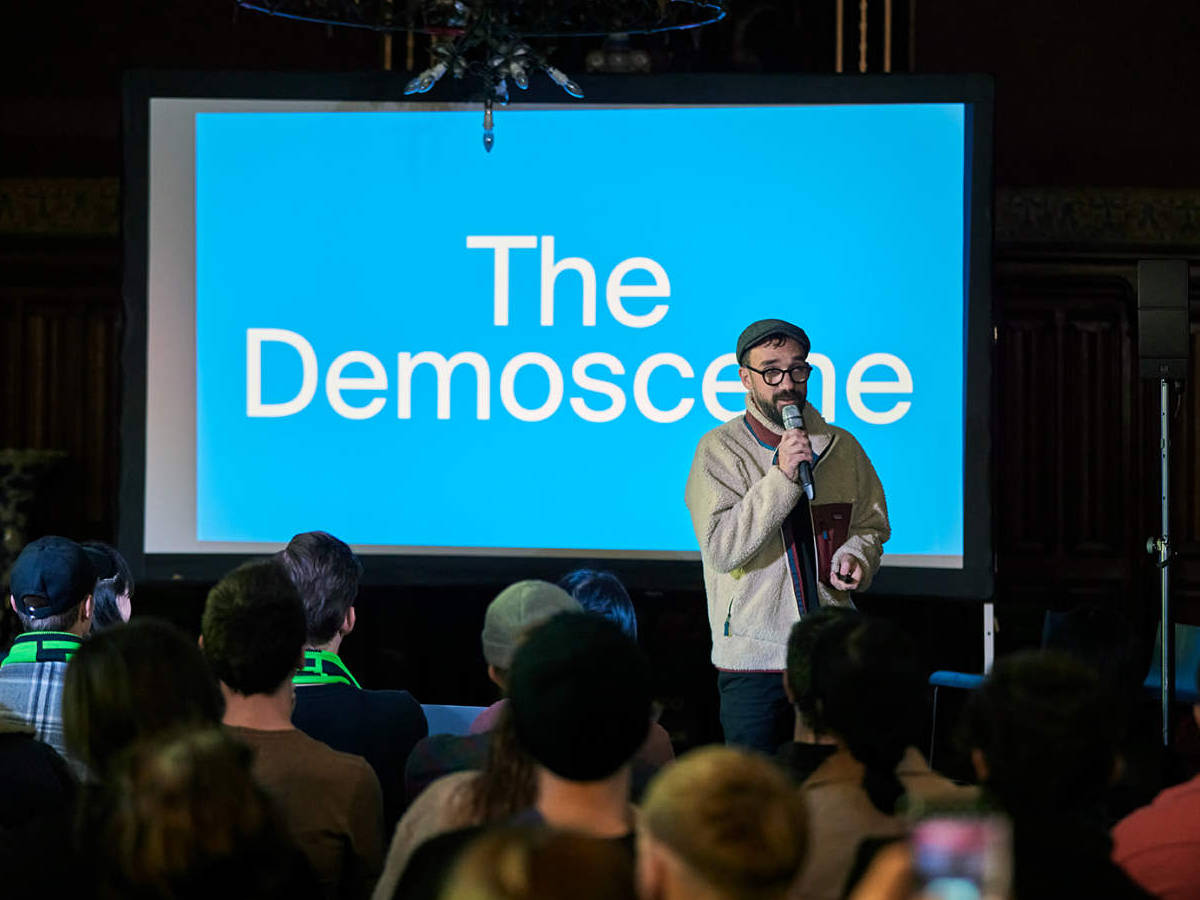 Throwback: My Talk at Demo Festival 2022
Throwback: My Talk at Demo Festival 2022
The next edition of the DEMO Festival is already approaching and I am currently developing a brand new talk for […]
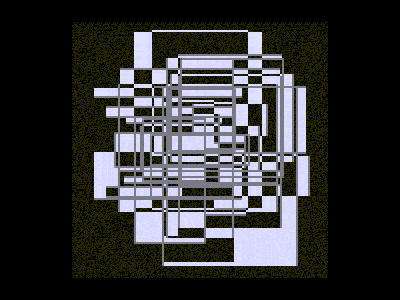 Powers of Two – 128kb by Lena Weber
Powers of Two – 128kb by Lena Weber
20 = 1 21 = 222 = 323 = 824 = 1625 = 3226 = 6427 = 128 … »In […]
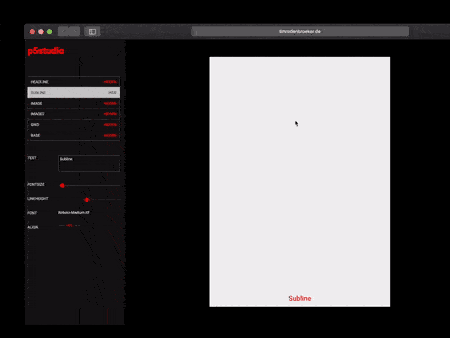 p5.js Design Tools Directory
p5.js Design Tools Directory
Hi! In this post I’ll collect case studies and direct links to tools that people have built with p5.js and […]
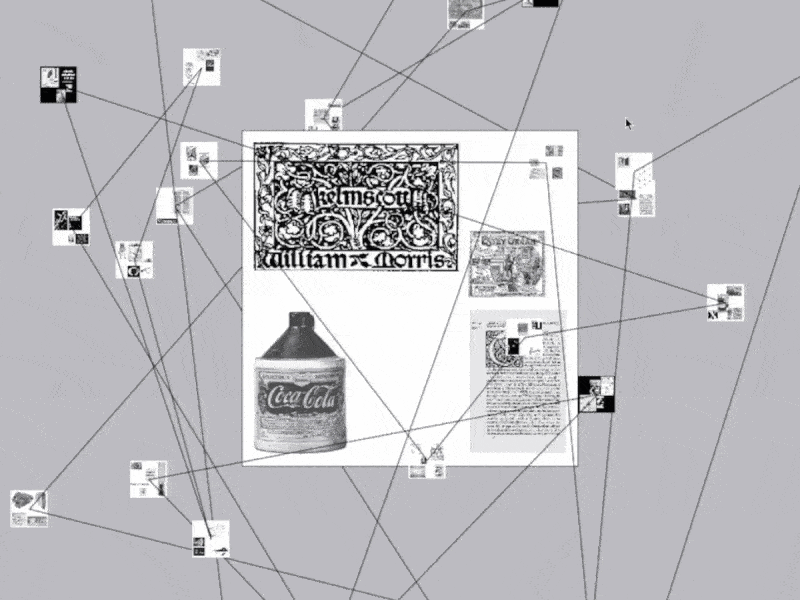 Omid Nemalhabib explores the intersection of Creative Coding and Perso-Arabic Typography
Omid Nemalhabib explores the intersection of Creative Coding and Perso-Arabic Typography
In 2022, I spontaneously posted a story on Instagram: If anyone out there is also in Rotterdam, I’d love to […]
 A conversation with Talia Cotton
A conversation with Talia Cotton
During OFFF Festival here in Barcelona, many interesting people come around! This interview with Talia Cotton came about almost by […]
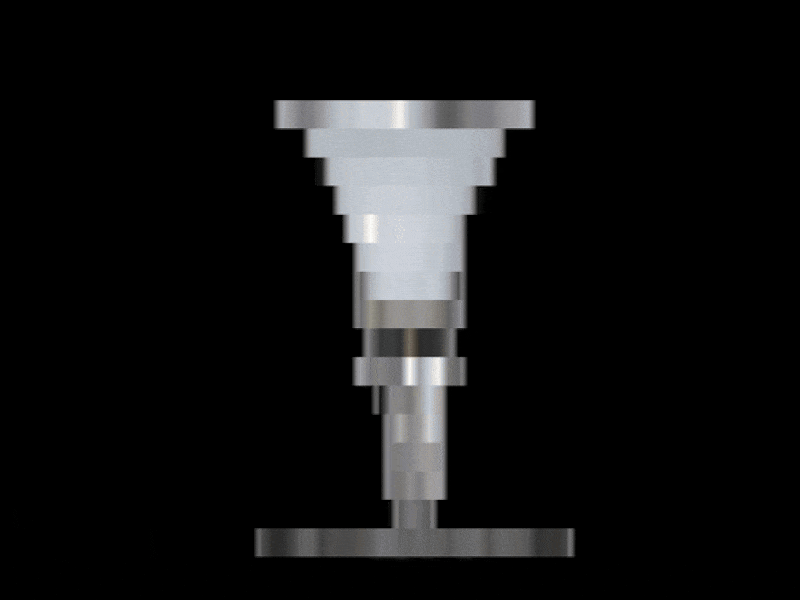 Lena Weber about her collaboration with A. G. Cook
Lena Weber about her collaboration with A. G. Cook
Lena: This 10-minute visualiser for A. G. Cooks album teaser featuring my python archive generator, is one of my favourite […]
 A conversation with Anna Shams Ili
A conversation with Anna Shams Ili
Hi Anna! It was super nice to meet you at the PCD CPH, I really liked your talk in which […]
